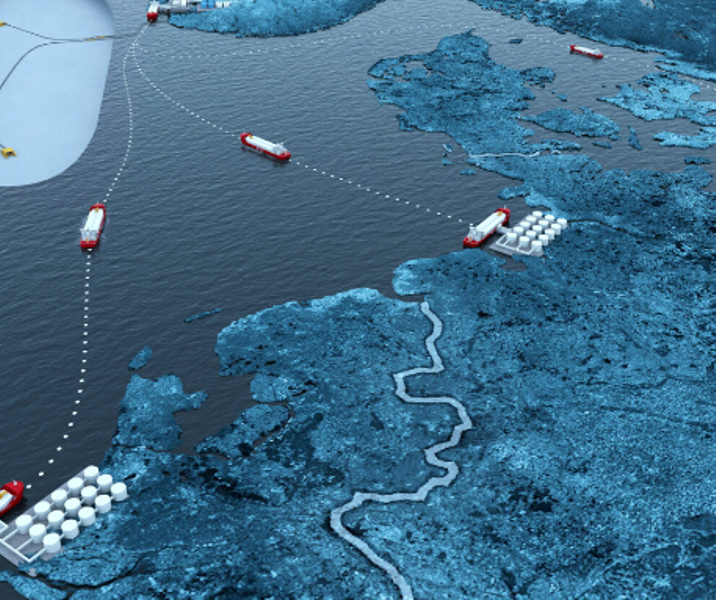Together with 30 other companies, Horisont Energi is joining a new industry coalition led by Madoqua Renewables to develop a robust green fuels and CO2 value chain connecting Portugal to Northern Europe and Norway. The forming of the coalition has today been formalized by the signing of a Memorandum of Understanding (MoU).
The coalition features global leaders like Cargill, Norwegian Cruise Line, Mitsui, Siemens, Thyssenkrupp, Kellogg Brown and other industrial and infrastructure partners, as well as financing partners like ING Bank in the Netherlands and MUFG Bank in Japan, and terminal and port partners in Portugal, Spain, Germany and the Netherlands connecting to Gismarvik CO2 hub as the terminal partner in Norway for intermediate storage and CO2 sequestration.
“It is essential to think in terms of entire value chains when planning and building new green industries and realizing the full potential of carbon management as part of the green transition. This coalition is an effort to establish a functioning large-scale CO2 management market, and we are glad to contribute as a CO2 infrastructure and sequestration partner. This is a recognition of our competence in this field and in the potential of our planned Gismarvik CO2 hub in a European context,” say Co-CEOs Bjørgulf Haukelidsæter Eidesen and Leiv Kallestad.
The coalition partners will promote collaboration to build an efficient supply chain for CO2 sequestration to the Netherlands and further on to Norway and for green hydrogen derivatives from Portugal to the Netherlands and Germany. Horisont Energi‘s Gismarvik CO2 hub will be the final and only hub for CO2 sequestration and storage in this coalition and in this value chain.
“Energy transition is a journey, where partnerships are key to success. Our recent ports collaboration is designed to make this approach a reality. Developing new generation facilities focused on producing e-fuels is just one piece of the integrated green fuel corridor puzzle. A significant amount of existing port, bunkering services and transportation infrastructure must be either re-purposed, augmented or built to meet the upcoming demand for e-fuels from the shipping and end use industry,” says Marloes Ras, the CCO of Madoqua.
The agreement builds further on Horisont Energi’s partnership with ECOLOG to advance the Norway–Netherlands CO2 corridor, which was announced in November. The initiative aims to strengthen connections within Europe’s CO2 infrastructure and support cross-border decarbonization efforts.
Earlier this year, the governments of Norway and the Netherlands signed a Cross-Border Transport Memorandum of Understanding to unite CO2 stakeholders, assess feasibility, and advance a CO2 Corridor with defined milestones and timelines.
The Gismarvik CO2 hub project is one of the largest CO2 hubs planned in Europe with an annual capacity for intermediate storage of 24 million tonnes.

